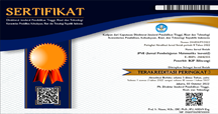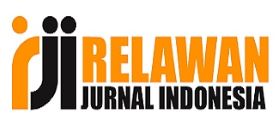HUBUNGAN SELF-EFFICACY SISWA TERHADAP KETERAMPILAN BERPIKIR KRITIS MATEMATIS SISWA SMP PADA MATERI BENTUK ALJABAR
DOI:
https://doi.org/10.22460/jpmi.v3i3.p%25pKeywords:
Self-Efficacy, Mathematical Critical Thinking SkillsAbstract
References
Handayani, F., & Nurwidawati, D. (2013). Hubungan Self-Efficacy dengan Prestasi Belajar Siswa Akselerasi. Character, 1(2), 1–5. file:///C:/Users/adis/Downloads/1868-3459-1-PB.pdf
Happy, N., & Widjajanti, D. B. (2014). Keefektifan PBL Ditinjau dari Kemampuan Berpikir Kritis dan Kreatif Matematis, serta Self-Esteem Siswa SMP. Jurnal Riset Pendidikan Matematika, 1(1), 48–57.
Hari, L. V, Zanthy, L. S., & Hendriana, H. (2018). Pengaruh Self-Efficacy Terhadap Kemampuan Berpikir Kritis Matematik Siswa. Jurnal Pembelajaran Matematika Inovatif, 1(3), 435–444. https://doi.org/10.22460/jpmi.v1i3.435-444
Hendriana, H., Rohaeti, E. E., & Sumarmo, U. (2017). Hard Skills dan Soft Skills Matematik Siswa. Refika Aditama.
Jayadipura, Y. (2014). Mengukur Kemampuan Berfikir Kritis Matematik. Prosiding Seminar Nasional Pendidikan Matematika.
Kurnia, R. D. M., Mulyani, I., Rohaeti, E. E., & Fitrianna, A. Y. (2018). Hubungan Antara Kemandirian Belajar dan Self Efficacy Terhadap Kemampuan Komunikasi Matematis Siswa SMK. JIPMat, 3(1), 59–64. https://doi.org/10.26877/jipmat.v3i1.2183
Nurdwiandari, P. (2018). Analisis Kemampuan Berpikir Kritis Matematik Dan Kemampuan Diri Siswa SMP Di Kabupaten Bandung Barat. JPMI (Jurnal Pembelajaran Matematika Inovatif), 1(5), 1005. https://doi.org/10.22460/jpmi.v1i5.p1005-1014
Nuurjannah, P. E. I., Amaliyah, W., & Fitrianna, A. Y. (2019). Jurnal Math Educator Nusantara ( JMEN ). 5(3), 26–35. https://doi.org/10.29407/jmen.v5i01.12727
Putra, H. D. (2017). Pengembangan Instrumen untuk Meningkatkan Kemampuan Mathematical Problem Posing Siswa SMA. Jurnal Euclid, 4(1), 636–645.
Putra, H. D., Putri, A., Lathifah, A. N., & Mustika, C. Z. (2018). Kemampuan Mengidentifikasi Kecukupan Data pada Masalah Matematika dan Self-Efficacy Siswa MTs. JNPM (Jurnal Nasional Pendidikan Matematika), 2(1), 48. https://doi.org/10.33603/jnpm.v2i1.862
Riyantono. (2010). Psikologi Pendidikan, Edisi. Universitas Muhammadiyah Malang.
Wiliawanto, W., Bernard, M., Akbar, P., & Sugandi, A. I. (2019). Penerapan Strategi Pembelajaran Aktif Question Student Have. Jurnal Cendekia : Jurnal Pendidikan Matematika, 3(1), 139–148. https://doi.org/10.31004/cendekia.v3i1.86

















